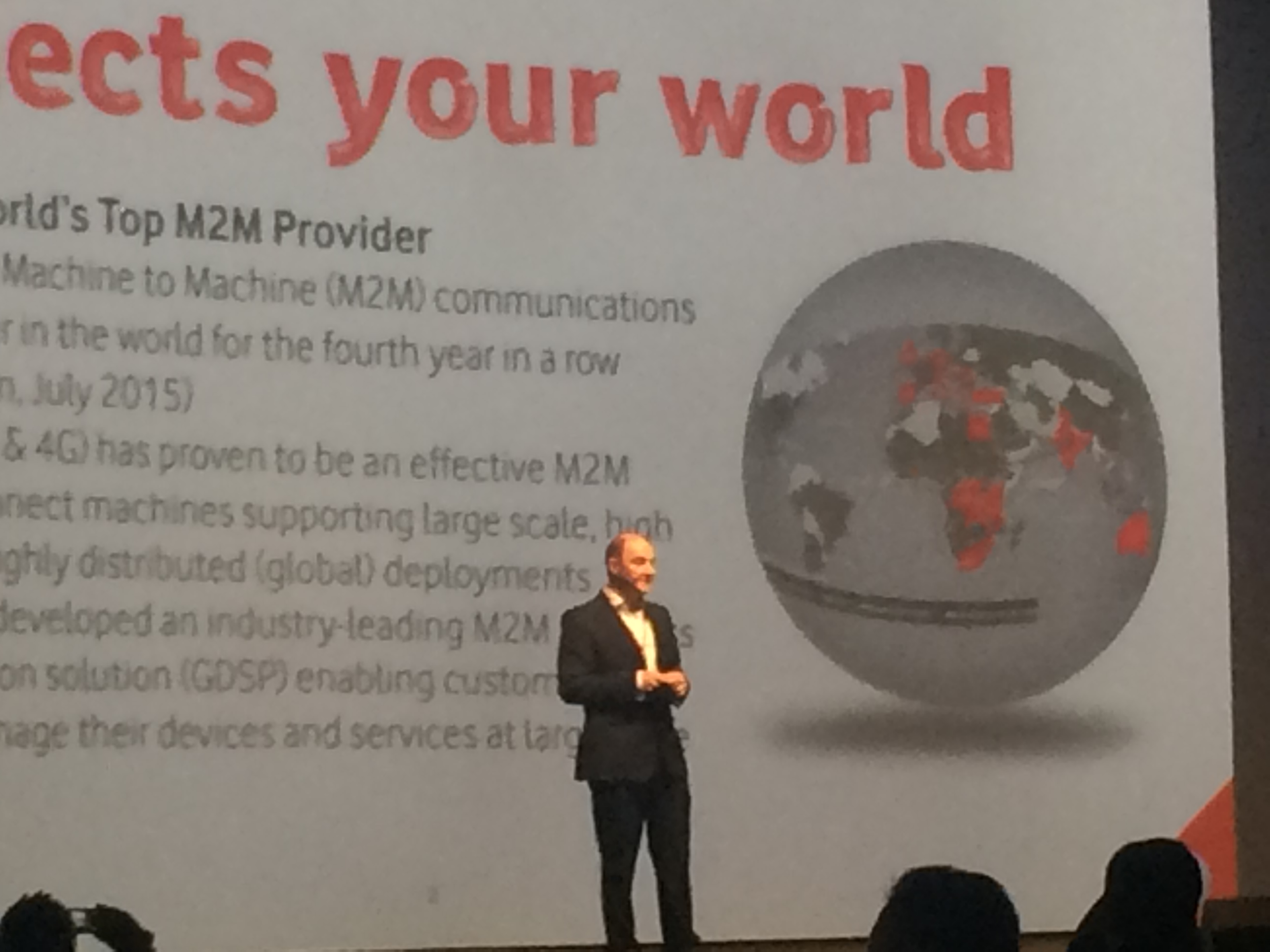

Vodafone has admitted its frustration at the lack of progress in finalising the NB-IoT standard for M2M communications, claiming it is essential that a common LPWA (Low Power Wide Area) technology is adopted if the telecoms industry is to make the most of the Internet of Things.
Speaking at the Huawei Global Mobile Broadband Forum (MBBF) in Hong Kong, Vodafone’s head of research and development Luke Ibbetson said that without an LPWA standard, the mobile industry would only be able to serve 10-15 percent of the market, with the remainder served by low power indoor systems.
“It’s an opportunity that we think is absolutely purpose fit for operators,” said Ibbetson. “But we’re under pressure because we quite frankly don’t have a solution in the right shape. We’re having to turn down perfectly good customers.
“For once we’re not looking for the finest engineering solution, we’re looking for the right one for the market at the right cost.
“We’re encouraged 3GPP is on the path to standardisation and we will have a flavour of the technology by the end of December, [but] we’re close to losing patience.”
Ibbetson said much of the technology had been finalised already, but decisions needed to be made soon so operators could serve customers and equipment vendors and chipset manufacturers could start work.
Vodafone wants applications that could be created once and deployed many times, such as smart metres, lighting and health, and used across multiple industries. These apps wouldn’t require much bandwidth and the use of 800MHz spectrum could allow for remote software upgrades.
“Almost everything has an example that makes their business more attractive or save money,” added Ibbetson.
Vodafone is hosting the NB-IoT Forum, which will be attended by a number of equipment manufacturers and operators in a bid to accelerate development
The company’s frustrations are echoed by Huawei, which says mobile faces threats from the likes of Wi-Fi, Bluetooth and SIGFOX in the Internet of Things arena, and believes the fact the industry is close to securing a standard is a “big victory.”
“We fought for two years and a lot of people tried to postpone this schedule,” said David Wang, president of Huawei’s wireless networking business unit. “I don’t know the reason [why].”
Huawei is holding commercial trials with Vodafone and Deutsche Telekom and says a multitude of standards will not help the industry.
“Huawei will spare no effort to push this NB-iIoT standardisation process,” added Wang. “We are working very hard and our target is mid-2016 to make this solution ready.”
What do you know about UK mobile operators? Find out with our quiz!
Deliveries of Telsa's 'bulletproof' Cybertruck are reportedly on hold, amid user complaints side trims are…
New feature reportedly being developed by Apple for iOS 19, that will allow AirPods to…
Binance BNB token rises after WSJ report the Trump family is in talks to secure…
After failed Amazon deal, iRobot warns there is “substantial doubt about the Company's ability to…
Community Notes testing across Facebook, Instagram and Threads to begin next week in US, using…